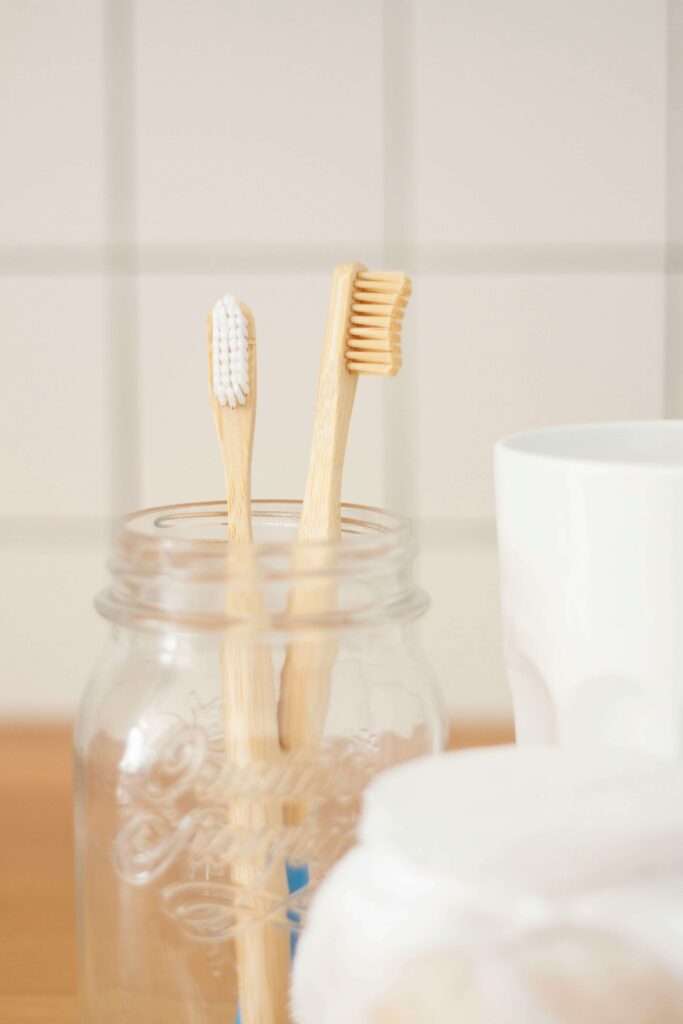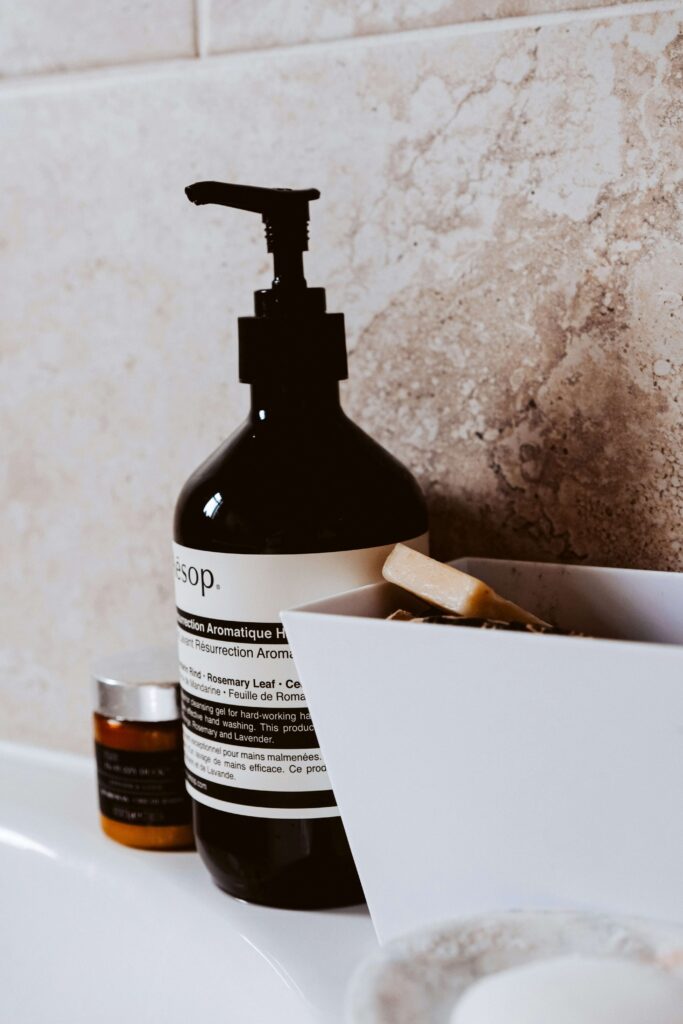
Tooth decay is a widespread dental problem, often resulting from poor oral hygiene and dietary habits. Incorporating herbs into oral care routines is gaining attention as a supplementary approach to combat tooth decay. Research indicates that certain herbs contain properties that can contribute to healthier teeth and gums, providing natural support for oral health.
Exploring the use of herbs for tooth decay includes understanding their antibacterial and anti-inflammatory effects, which play a critical role in preventing plaque formation and gingival inflammation. Such natural solutions are traditionally well-regarded and are now being studied for their potential benefits in modern dental care. The integration of herbal remedies into daily oral hygiene practices promises to offer a holistic measure against the onset of tooth decay while underpinning the importance of maintaining overall dental health.
Key Takeaways
- Herbs offer antibacterial and anti-inflammatory properties beneficial for oral health.
- Natural remedies can support traditional oral hygiene practices in preventing tooth decay.
- Integrating herbs into daily dental care routines is emerging as an adjunct to modern treatments.
What are we talking about today?
- Understanding Tooth Decay
- Importance of Oral Hygiene
- Natural Remedies for Tooth Decay, 5 Easy Herbs for Tooth Decay
- Diet and Nutrition for Healthy Teeth
- Modern Dental Treatments
- 5 Easy Prevention Strategies
- Research and Advances in Dental Health
- Frequently Asked Questions
Understanding Tooth Decay
Tooth decay, known as dental caries, is a condition where your enamel deteriorates due to acids made by bacteria in your mouth. This section will examine the causes and symptoms, equipping you with essential knowledge to protect your oral health.
Causes of Tooth Decay
Tooth decay occurs when bacteria in dental plaque convert sugar from your diet into acid. This process can damage the enamel, the hard, protective outer layer of your teeth. Common contributors to this condition include:
- High consumption of sugary or acidic foods and drinks
- Poor oral hygiene that allows plaque build-up
- Insufficient fluoride, which helps to protect against decay
- A diet low in essential minerals like calcium and phosphorus, which are necessary for strong enamel
- Regular consumption of foods with phytic acid, which may contribute to mineral depletion in teeth
Eating fruits with naturally occurring sugars in moderation is important, as excessive intake can contribute to decay and promote harmful bacteria over time.
Symptoms of Tooth Decay
The development of tooth decay can lead to visible signs and physical discomfort. Early recognition of these symptoms is crucial for prompt treatment:
- Dental cavities or small holes visible in the affected tooth
- Toothache or pain in your teeth, sometimes triggered by sweet, hot, or cold foods
- Sensitivity or tenderness when biting down
- Brown, black, or white staining on the surface of your teeth
- Pain when eating or drinking
- .. and not to mention bad breath!
If you notice a change in the appearance of your teeth or experience any discomfort, consult your dentist to address the issue and maintain your oral health. Remember, early detection and treatment are key to preventing the progression of tooth decay.
Importance of Oral Hygiene
Maintaining oral hygiene is crucial for preventing tooth decay and ensuring overall dental health. Your daily routines and dietary choices play significant roles in keeping your teeth healthy.
Brushing and Flossing Techniques
Good oral health includes brushing your teeth twice daily with fluoride toothpaste which is essential for cleaning away dental plaque and food particles. Use a soft-bristled brush to reach all surfaces of your teeth, and be gentle to avoid damaging your gums. Flossing once a day helps remove plaque and food from between your teeth where a brush can’t reach. Wrap the floss around each tooth and slide it beneath the gumline in a ‘C’ shape.
Role of Saliva and Diet in Oral Health
Your saliva serves a natural defence against tooth decay. It helps neutralise acids and washes away food particles, reducing the risk of cavities. Consume a balanced diet low in sugary snacks and beverages because sugar can contribute to dental caries. Instead, choose foods that stimulate saliva flow like crisp fruits and vegetables.
Professional Dental Care and Regular Check-Ups
Visiting a dentist for regular dental check-ups at least twice a year is vital for maintaining oral hygiene. These check-ups allow for the early detection and treatment of oral health issues before they escalate. Professional cleaning by your dentist or dental hygienist also removes tartar that can’t be cleaned with brushing and flossing alone.
Natural Remedies for Tooth Decay
In combating tooth decay, several natural remedies have been identified as beneficial. By leveraging the power of certain herbs and practices like oil pulling, you can tap into their remedial properties to support oral health.


#1 Herbs for Tooth Decay and Their Efficacy
1. Clove: Cloves and clove oil are celebrated for their important role in antibacterial and anti-inflammatory properties, providing relief from toothaches and supporting efforts to minimise decay. The application of clove oil can also help to reduce oral infections due to its strong antiseptic qualities.
2. Sage: Sage is a natural herb and has traditionally been used as a natural disinfectant and can be beneficial for oral health due to its antimicrobial properties.
3. Neem: In places where traditional medicine is practised, such as traditional Chinese medicine, neem is widely used for its antibacterial qualities which contribute to the fight against tooth decay.
4. Propolis: Derived from bees, propolis functions as an antimicrobial agent that helps in treating and preventing oral diseases.
5. Echinacea: Its antibacterial and immune-boosting properties make it helpful in the fight against infections contributing to tooth decay. This can be consumed as a herbal extract.
These herbs offer an array of essential minerals, including calcium and magnesium, and antioxidants that contribute to the remineralisation and restoration process of your teeth’s enamel.
#2 Oil Pulling and Its Benefits
Coconut Oil: Practicing oil pulling with coconut oil can greatly benefit your oral hygiene routine. The process involves swishing oil around in your mouth to reduce plaque formation, strengthen gums, and even potentially reverse cavities.
Mechanism: Oil pulling is understood to work by pulling out toxins and bacteria from your mouth which might contribute to decay. It’s a simple, yet effective routine you can add to your daily oral care to promote a healthier mouth environment.
Incorporating these natural remedies into your oral health regimen can provide dual benefits of tackling decay and fortifying your teeth against future dental issues.
Diet and Nutrition for Healthy Teeth
A balanced diet and proper nutrition play a crucial role in maintaining the health of your teeth. It’s not just about what foods you avoid, but also the nutrients you include that can help prevent tooth decay and promote dental health.
Foods to Avoid and Include
Avoid:
- Sugary Foods: Consuming foods high in sugar can lead to dental caries, as sugar fuels the bacteria in plaque that produce harmful acids. Be particularly wary of sticky sweets that cling to your teeth.
- Acidic Foods and Drinks: These can erode tooth enamel. Limit the intake of soft drinks, citrus fruits, and vinegar-containing foods.
Foods to Include that are great for oral health:
- Crunchy Vegetables: Foods like carrots and celery help clean your teeth, almost like a natural toothbrush.
- Dairy Products: Cheese and milk are not only high in calcium, which is essential for strong teeth, but they also increase saliva flow, which helps to wash away food particles.
Incorporating nutrient-rich foods from diverse sources ensures that your diet supports oral health and counteracts the negatives of the Western diet, which is often laden with sugars and refined flour.
Role of Vitamins and Minerals in Dental Health
Vitamins:
- Fat Soluble Vitamins: Vitamins A, D, E, and K play critical roles in oral health. Vitamin D, for example, is vital in the absorption of calcium and phosphorus from your diet.
- Vitamin K2: Highlighted by Weston A. Price, this vitamin is essential for depositing these minerals into teeth and bones, thus preventing cavities.
Minerals:
- Calcium: This is a core element for healthy teeth as it fortifies enamel, the protective outer layer of your teeth.
- Phosphorus: Often found in foods like meat, eggs, and nuts, it’s an important companion to calcium in strengthening tooth enamel.
- Magnesium: This mineral works with calcium to ensure proper teeth formation and integrity of the jawbone.
To achieve dental health, ensure your diet is rich in these vitamins and minerals. It is also essential to rectify any potential mineral deficiencies with a balanced intake of these nutrients.
Modern Dental Treatments
In pursuit of maintaining dental health, modern dentistry offers a variety of treatments designed to prevent and repair tooth decay. These approaches aim to fortify your teeth against cavities and restore them in case of damage.
Fluoride Treatments and Dental Sealants
Fluoride is essential for the remineralisation of your teeth, which helps in reinforcing the tooth enamel and preventing decay. Professional fluoride treatments contain a higher dose of fluoride than what is found in your toothpaste or water supply, which can offer additional protection against cavities. These treatments are typically administered as a gel, foam, or varnish, and they are especially beneficial for individuals at high risk for tooth decay.
Dental sealants, on the other hand, act as a barrier, protecting the grooves of your teeth where food particles commonly get trapped and bacteria proliferate. Sealants are generally applied to the chewing surfaces of the back teeth – premolars and molars – and can drastically reduce the likelihood of cavities in these areas.
The Use of Fillings and Implants for Restoring Teeth
When tooth decay does occur, fillings are the most directly restorative treatment option. Dental fillings, such as those made from amalgam or composite materials, help in restoring a tooth damaged by decay back to its regular function and shape. Amalgam fillings, consisting of a mixture of metals, have been a staple in restorative dentistry due to their durability, while composite fillings are valued for their aesthetic qualities that match the colour of your teeth.
For more severe cases where teeth are significantly damaged or missing, dental implants serve as a robust restorative solution. Implants provide a foundation for replacement teeth that are designed to look, feel, and function like your natural teeth. Through a surgical process, dental implants are anchored directly into your jawbone, acting as a sturdy substitution for tooth roots and supporting artificial teeth like crowns or dentures.
Remember to consult your dental health professional to determine which treatment options may be best suited for your specific needs.
Prevention Strategies
In addressing tooth decay, the best way is to combine lifestyle modifications with community engagement can provide a solid foundation for better oral health outcomes.
Lifestyle and Home Care Practices
#1 Diet: Minimise your consumption of sugary foods and drinks, as they can contribute to tooth decay. Instead, incorporate nutrient-rich foods that support oral health, such as dairy products rich in calcium, leafy greens, and fibrous fruits and vegetables.
- #2 Brushing: Make sure to brush your teeth at least twice a day with fluoride toothpaste. Using a soft-bristled toothbrush, replace it every three to four months or sooner if the bristles are frayed.
- #3 Flossing: Floss daily to remove plaque and food particles from between your teeth where a toothbrush can’t reach.
- #4 Mouthwash: Consider using a mouth rinse that contains fluoride or one with antiseptic properties to help reduce plaque, tooth cavities and prevent gum disease.
- #5 Sugar-free gum: Consider using gum that is low in sugar.
Educational Resources and Community Programs
Seek out and utilise community programs that provide educational resources on maintaining proper oral hygiene. Learning sessions often focus on the importance of regular brushing with the correct technique, the benefits of flossing, and choosing the right mouthwash. Additionally, some community programs may provide free toothbrushes and instructional material to encourage better oral care practices among various age groups.
Research and Advances in Dental Health
Recent advancements in dental health research have underscored the significance of herbs in tooth decay and oral health. You’ll discover how scientific studies validate the efficacy of herbal remedies and the growing adoption of holistic approaches in dentistry.
Scientific Studies on Herbs and Oral Care
Scientific evidence demonstrates the antibacterial and antimicrobial properties of various herbs, indicating their potential to combat dental caries. Researchers suggest that herbal extracts such as those from Persica, known for its role in promoting oral and dental health, have shown promise in inhibiting the growth of bacteria linked to tooth decay. Studies exploring the antimicrobial efficacy of these extracts have brought to light their antioxidant capabilities, offering a complementary approach to traditional oral healthcare practices.
RELATED: The So-Called Healing Power Of Herbal Tea – An Introduction
Emerging Trends in Holistic Dental Care
Holistic dental care is gaining traction, integrating Ayurveda and Traditional Chinese Medicine into modern dental practice by using herbs for tooth decay. This approach not only addresses tooth decay but also the overall well-being of the oral cavity. Current research points to the use of natural substances like herbal mouth rinses which contribute to oral health. For instance, oil from peppermint has been researched for its soothing effects on toothaches and its potential to curb dental problems. Holistic trends emphasise the lesser side effects and preventive aspects of herbal care, highlighting a shift towards more natural oral health solutions.

Frequently Asked Questions
Exploring the use of herbs for tooth decay can be both enlightening and beneficial for managing tooth decay. These FAQs aim to guide you through various natural approaches to dental care.
What natural remedies can alleviate tooth pain?
Your toothache might find relief in the application of clove oil, which contains eugenol, a natural anaesthetic. Additionally, rinsing your mouth with warm saltwater may help reduce swelling and soothe discomfort.
How might one address tooth decay using home remedies?
To combat tooth decay, you may consider oil pulling with coconut oil, which can reduce plaque and decay-causing bacteria. It’s also worthwhile to increase your intake of foods that support remineralisation, such as those high in calcium and phosphates.
Can herbal treatments be effective for oral bacteria control?
Herbs for tooth decay like neem, with its antibacterial properties, may help control harmful oral bacteria. Regularly using neem-based mouthwash could potentially decrease dental plaque and prevent gingivitis.
Is there a natural way to promote the repair of tooth enamel?
Although natural ways to repair tooth enamel are limited, certain dietary choices can aid enamel strengthening. Foods rich in vitamins and minerals, particularly vitamin D and calcium, can support enamel remineralisation.
Which plants are traditionally used to treat dental issues?
Plants such as pomegranate have a history of use in dental care due to their antimicrobial properties. Other herbs, including aloe vera and echinacea, are also praised for soothing inflamed gums and reducing infection.
What Ayurvedic practices are recommended for maintaining healthy teeth and gums?
Ayurveda suggests practices like oil pulling with sesame oil and chewing on sticks from the neem tree to maintain oral hygiene. Incorporating turmeric, known for its anti-inflammatory properties, can also be beneficial for dental health.



Comments +